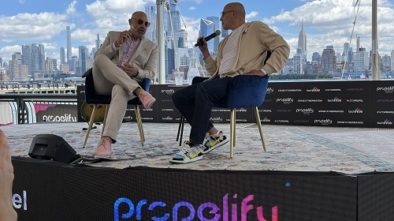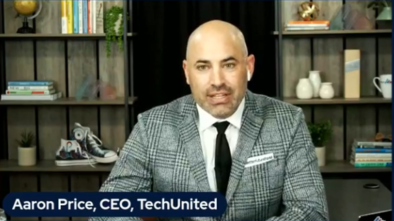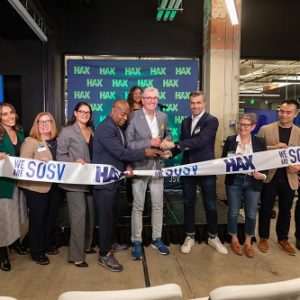PSEG’s Izzo Wants to Unleash the Power of Entrepreneurs on Energy Problems
The New Jersey Tech Council (NJTC) and PSEG launched a CleanTech Impact Challenge during an April 23 webinar that also featured former presidential candidate Andrew Yang.
The details of the challenge can be found here; but, in broad strokes, it involves startups creating solutions that address one of three challenge statements: how to reduce energy and gas usage, drive energy efficiency or address workforce development.
Scores will be weighted to give preference to companies in New Jersey, but out-of-state startups are encouraged to apply. Companies participating in the challenge must have under $2 million in annual revenue. The winner will receive $50,000 towards their startup, and will have access to executives at PSEG who will determine if their product can be successfully scaled there.
During the discussion, Ralph Izzo, PSEG president, CEO and chairman of the board, answered some of the burning questions people have when a big company like PSEG decides that it wants to work with startups. Among those questions: Why would a company with an interest in selling electricity and gas want people to use less of it?
“I don’t think of myself or PSEG as being in the business of selling energy. I think of us as being in the infrastructure business that allows people to live their lives certain way.Ralph Izzo of PSEG to Aaron Price of NJTC
“I don’t think of myself or PSEG as being in the business of selling energy,” Izzo told NJTC president and CEO Aaron Price. “I think of us as being in the infrastructure business that allows people to live their lives certain way. The infrastructure that we see, that we invest in, happens to be how people use energy. … For a century, it was pipes and wires that delivered energy to people.”
“[We want to make] people’s lives better in the future, first by using less and secondly by using energy that’s much cleaner, because they will need to use some, and third by delivering it more reliably than ever before,” he said.
The Need For Enabling Policy
To make that happen, Izzo believes that we need an enabling government policy. “If we are allowed to, from a policy point of view, invest in infrastructure that makes that real, then our shareholders can be happy, the environment can be happy enough, customers can be happy. That infrastructure ranges from large transmission towers, to solar panels, to smart thermostats. … You need to have a regulatory system that appreciates all of that, and doesn’t simply favor one part of it over and over.”
Supplying the energy in an efficient way requires “a combination of two technologies. It’s renewables and nuclear power for the time being in places like New Jersey that don’t have a lot of sun and don’t have a lot of wind. Natural gas will need to be a part of that.”
Renewables are problematic, Izzo said. “I don’t think that solar is quite ready at this point economically to be the best use of our environmental dollar. New Jersey has spent a lot of money on solar. And we’ve lowered the cost of that, but it’s still very, very expensive. That’s a different story in Arizona, Florida, Colorado and Nevada,” where solar is sold as “extremely competitive with fossil fuels. But in New Jersey, rooftop solar is an expensive proposition even to this day.”
Advanced Metering Infrastructure
The regulators at the New Jersey Board of Public Utilities are getting the message. “They are now embarking on encouraging utilities to invest in something called ‘advanced metering infrastructure,’” Izzo said.
“Our electric system is extremely smart at the power plants. We have all sorts of diagnostics that tell us how the plants run. And it’s pretty smart at the transmission level. But it gets kind of dumb — actually, it’s downright dumb — in New Jersey at the customer level. We read meters by and large once a month, so we have no visibility as to customers’ consumption patterns, and therefore customers don’t have any visibility on their own consumption patterns.
“So, it would be great if we were to change that to an advanced metering infrastructure that can allow us to understand how customers are using electricity” at a granular level, for example “every day, hour, half hour at a time.” Izzo stated that the utility would then be able to understand how using an energy-efficient air conditioner, for instance, would affect energy consumption. Izzo is looking for data-science solutions to these problems.
“I would love to see the creativity of entrepreneurs unleashed, “ he said, whether it’s to come up with a better light bulb or smarter thermostat, or software that will allow PSEG “to take the data that we will be able to extract,” unveiled by a new metering infrastructure, and that will “allow us to slice it and dice it to be able to understand how customers are using energy,” he said. “We want to be able to manage the home environment in a way that’s more efficient.
“If I had all the ideas in my head, then we wouldn’t need the data challenge. I know there’s people out there who are a lot smarter, a lot more creative than I am,” he said.




